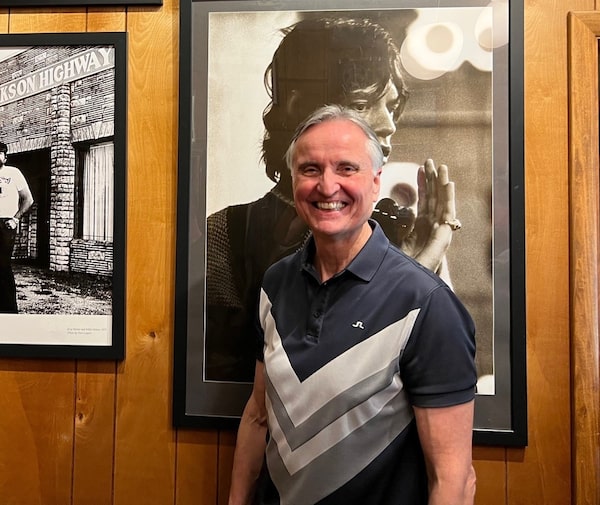
Daryl Diamond, chief retirement income strategist at Dynamic Funds in Winnipeg, worked one summer as a DJ at a local radio station in Regina. 'That’s when I discovered that you could work at something you really enjoy,' he says.Supplied
Sign up for the Globe Advisor weekly newsletter for professional financial advisors on our sign-up page. Get exclusive investment industry news and insights, the week’s top headlines, and what you and your clients need to know. For more from Globe Advisor, visit our homepage.
In the Behind the Advice series, Globe Advisor asks advisors about their relationship with money from a young age, lessons learned over the years, and how their experiences influence the advice they give clients.
Daryl Diamond is the chief retirement income strategist at Dynamic Funds in Winnipeg. He started this role a year ago after 35 years of running his own financial advisory practice, Diamond Retirement Planning Ltd. Here, Mr. Diamond talks about his first job, the concept of exchanging time for money, and advice for young people looking to get into the industry he’s been a part of for almost four decades.
What was your first money lesson?
My first real job was at 15 years old. My father got me a job at the building supplies company where he worked as an accountant and general manager. It was a summer gig, working in the yard, stacking lumber and helping with deliveries. It was the first time I got a paycheque – money in exchange for doing work. (The allowance I got from my parents for doing menial chores around the house didn’t count.) I learned to appreciate the choices you could make when earning your own money. Suddenly, I could buy things without asking my parents for money. It was also my first experience with the concept of exchanging time for money.
How did this experience influence your money habits as you got older?
I started working a lot more in my teens. One summer I worked two jobs: delivering mail for Canada Post, which paid pretty well, and as an overnight DJ at a local radio station in Regina. The latter didn’t pay as well, but I had a blast. Sometimes, I couldn’t believe they paid me to talk into a microphone and play music. That’s when I discovered you could work at something you really enjoy. I also realized that you don’t have to stick with just one job. For most of my professional life, I have been doing different jobs: running a financial planning practice and consulting outside for investment firms, banks and investment fund companies. I found it energizing because I enjoyed all of it.
How did you get into the industry?
While getting my teaching degree, I taught at a high school in Regina and coached sports as an extracurricular activity. I discovered that, regardless of how much extra work you put in, you’re paid the same as everyone else. The pay scale was irrespective of your effort, ability and effectiveness. While that works well for some people, it wasn’t for me. I decided instead to pursue a line of work that rewarded me (or punished me) based on how effective I was (or wasn’t) in my efforts. I decided to get into the life insurance business shortly after, which was my entry into the financial services industry.
What’s your biggest money mistake and what did you learn from it?
When I was newly married, I took out a loan so I could lend money to someone I was planning to start a business with on the side of my day job. The deal went south, and I lost that money – and the business opportunity. For two-and-a-half years, every time I paid for that loan, it reminded me that I could have been using that money toward something else. It taught me to be a lot more careful with how I invest my money and, more importantly, to evaluate people better.
What decision has made the greatest impact on your life?
Narrowing my career focus to financial planning, specifically retirement income. It seemed like a crazy decision at the time because I was limiting my opportunities. However, by staying in one lane, I gained a lot of experience and honed my craft. The more you focus on one aspect of your work, the better you become at it.
What advice do you have for someone wanting to enter the industry?
If I were a young person starting out today, I would try to find an organization that aligns with my style and provides experience and mentorship to help me grow. Thankfully, many companies offer that today. Then, once you have some experience, pick a lane and stick to it; don’t be a generalist. It’s a lot of work, but it’s worth it in the end – at least, that’s been my experience.
This interview has been edited and condensed.
For more from Globe Advisor, visit our homepage.